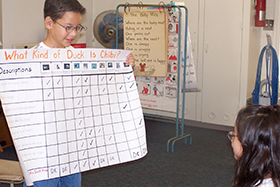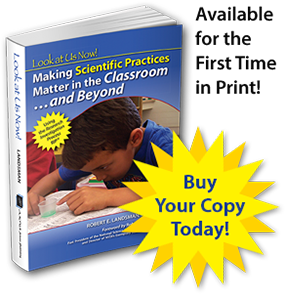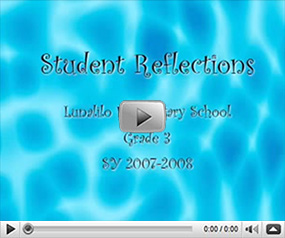Method
Chapter 7: The Special Needs Student and Scientific Inquiry: A Successful Tale
by Susan Kamida
 These students with special diverse needs found it especially challenging to focus on content in language arts until they became heavily involved in learning through scientific inquiry that involved investigations originating from their own experiences. The students actively engaged in scientific practices and assumed ownership and responsibility of their learning. As they developed the methods they used to conduct their investigations they became fully engaged in learning about literature genres, social studies, and science content. Among the many More Emphasis conditions addressed by teacher Susan Kamida and/or her students was Focusing on student understanding and use of scientific knowledge, ideas, and inquiry processes. “Although not a science teacher, I decided to take a look at the process of scientific inquiry as a possible way to encourage my students to want to learn about language arts. I had taken a course on the RIP scientific inquiry teaching approach and now introduced that process to my students as a strategy for learning.”
These students with special diverse needs found it especially challenging to focus on content in language arts until they became heavily involved in learning through scientific inquiry that involved investigations originating from their own experiences. The students actively engaged in scientific practices and assumed ownership and responsibility of their learning. As they developed the methods they used to conduct their investigations they became fully engaged in learning about literature genres, social studies, and science content. Among the many More Emphasis conditions addressed by teacher Susan Kamida and/or her students was Focusing on student understanding and use of scientific knowledge, ideas, and inquiry processes. “Although not a science teacher, I decided to take a look at the process of scientific inquiry as a possible way to encourage my students to want to learn about language arts. I had taken a course on the RIP scientific inquiry teaching approach and now introduced that process to my students as a strategy for learning.”
Your Shopping Cart
Ordering five (5) or more copies? Contact us for a special volume discount.
Read the Foreword
Enter your name and e-mail address below for immediate access to read the complete Foreword, written by Dr. Robert E. Yager, in its entirety.


 ANOVA Science
ANOVA Science